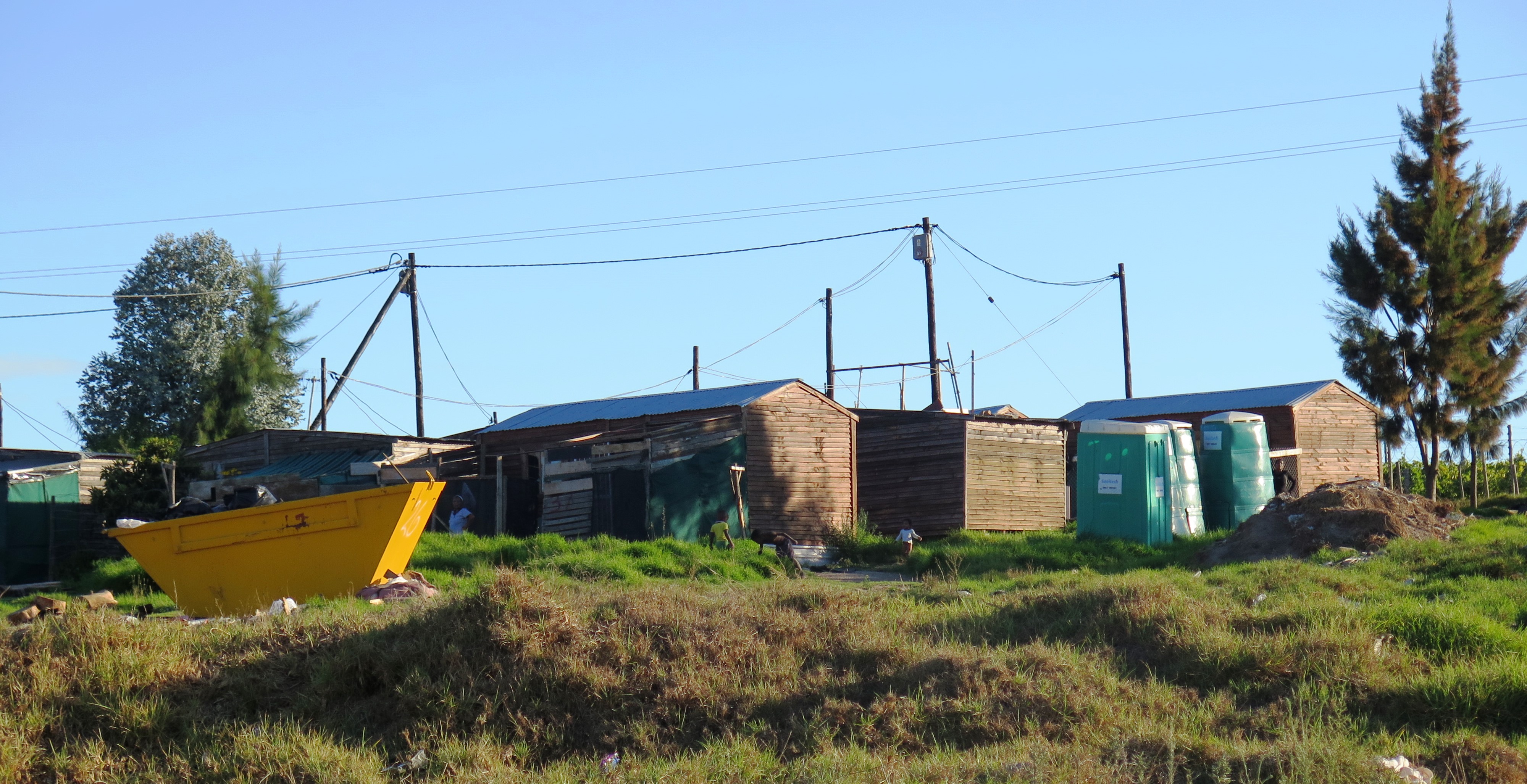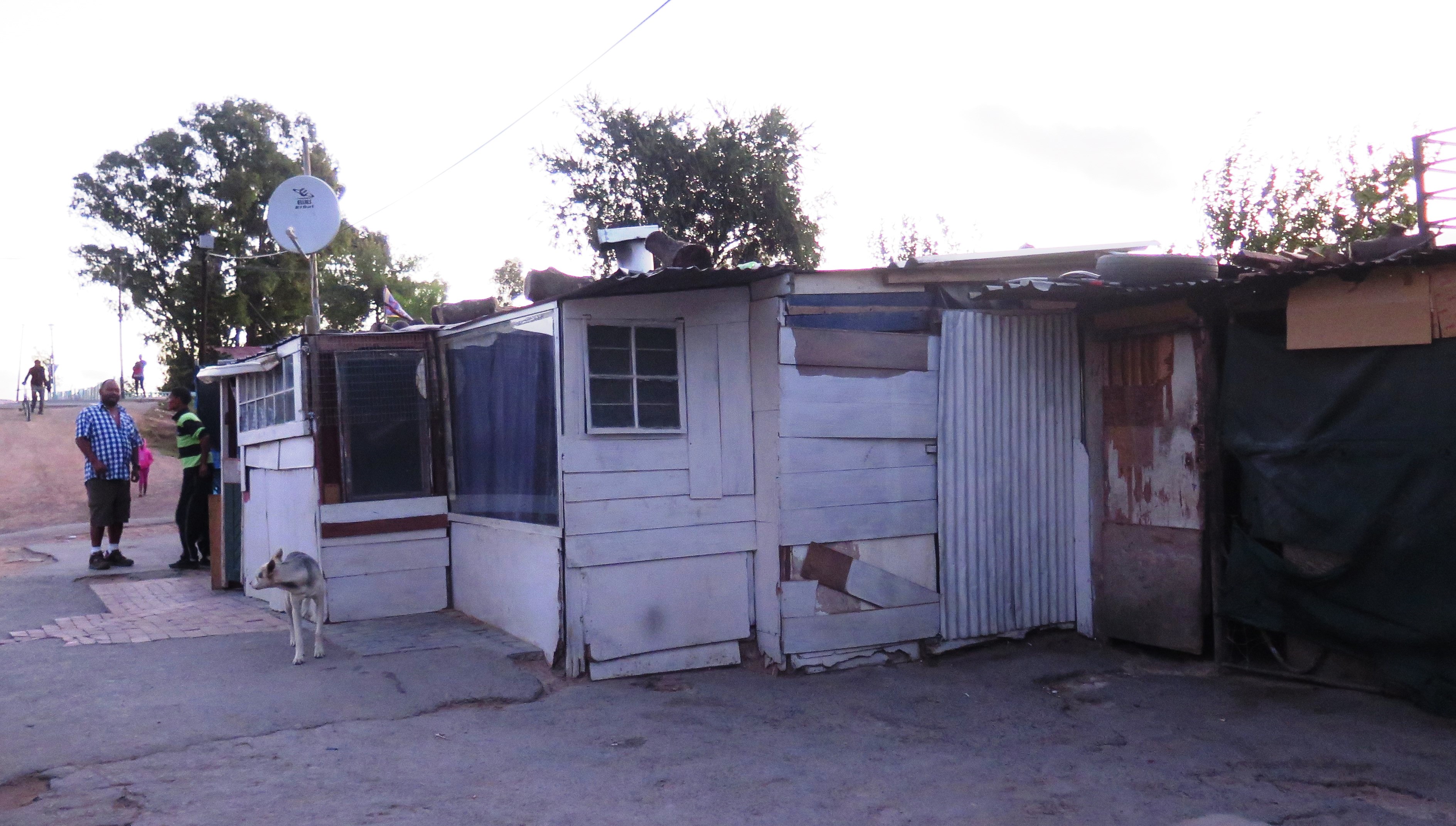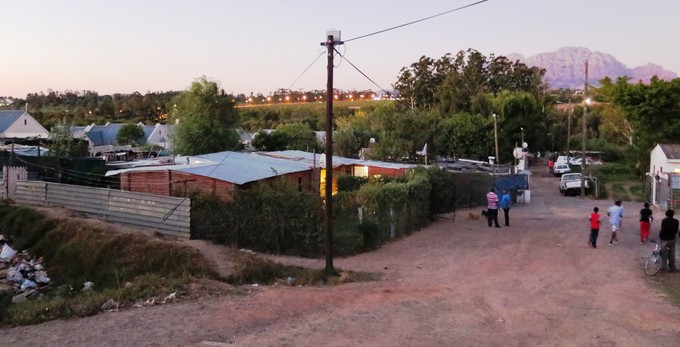Wine estate in court bid to evict families
Plan to house Blaauwklippen residents on municipal land
Residents of Kreefgat, a small settlement on private land in Stellenbosch, some of whom have lived there for more than 20 years, face possible eviction.
Blaauwklippen Agricultural Estates Stellenbosch, a wine farm, owns part of the Kreefgat land. The rest is owned by Edwin and Wesley February, two brothers who are local businessmen.
Blaauwklippen and the February brothers are applying for an eviction order against the residents of Kreefgat and want to compel the Stellenbosch municipality to provide alternative accommodation for the residents. On Thursday, the case will be heard in court.
“I think it is about money,” said resident Marius Muller, who has lived in Kreefgat for about 25 years and says the residents have known each other for “a lifetime”.

Another resident, Manie Hendricks, has lived in Kreefgat for about 21 years, formally paying rent of R150 to the previous owner of the land, like many of the original residents of Kreefgat.
Cape Dutch Estates, of which Blaauwklippen is the holding company, purchased the land from the previous owners in 2003, and the land was transferred to Blaauwklippen as part of a restructuring of the company in 2015.
Kreefgat is situated on a sliver of land next to La Clémence, a luxury retirement village, and near an upmarket shopping mall. Kreefgat stands in stark contrast; it still has a bucket system in use and no electricity except for those who can afford a generator. Despite this, many of the houses have expanded into comfortable homes over the years.
Last year, after a fire broke out in Kreefgat, 43 families were temporarily relocated to municipal land near a graveyard about a kilometre away, which will be the temporary home of all the Kreefgat residents if evicted. Blaauwklippen undertook to contribute R2.5 million to assist in the fire victims’ move and will also make an additional financial contribution for the remaining residents to be moved.
According to an affidavit by Blaauwklippen’s managing director Rolf Zeitvogel, who is a director of both Cape Dutch and Blaauwklippen, the municipality’s plan is to then move everyone to permanent housing adjacent to this on the Jamestown Housing Project Phase 2, which is currently being built.

Kreefgat residents appear very concerned about crime in the relocation area. Hendricks said that when the victims of the fire moved to the wendy houses in the relocation area, they complained about it, but that since the introduction of electricity there had been fewer complaints.
“On the weekends crime is high. People don’t sleep there on the weekends,” he said.
Hendricks said there were three different communities living around the relocation area, in comparison to the single community in Kreefgat.
But Zeitvogel states in his affidavit:
“The community [Kreefgat] also had a history of being plagued (and continues to be plagued) by a high crime rate and several drug dealers and shebeens have been operating from the premises.”
He goes on to assert that the living conditions improved for those relocated after the fire as there was a central toilet system, potable water, electricity and safer conditions for the children.
Zeitvogel states in his affidavit that the Kreefgat land was bought to be developed for Blaauwklippen employees, but that this could not happen because the residents of Kreefgat were occupying the land.
After Cape Dutch took ownership of the land, negotiations were entered into with the municipality to relocate the residents of Kreefgat, pointing to the “the poor living conditions”, as well as “health and safety risks” and the environmental impact of Kreefgat. The municipality has already agreed to provide alternative accommodation.
Zeitvogel states that Blaauwklippen believes that “the majority of the respondents are willing and ready to relocate from Kreefgat, but that there is a small number of disruptors who are standing in their way of having meaningful discussions with the applicants”.
But Hendricks says the situation is more complex and while many residents do want to move, they do not wish to move to the temporary wendy houses or to have their living situation downgraded.
“I don’t want to start over again from scratch,” he said.

Paul Hendler, a resident of Stellenbosch and founder of Stellenbosch Transparency, an organisation that is trying to bring attention to the plight of the Kreefgat residents, is set to release a video on the situation.
“I have a sense that they are a closely knit community,” said Hendler.
He said that the houses in the final settlement are still “fairly small houses” compared to the much larger houses in Kreefgat. There is a “classic shortage of housing in a certain price range … Even people who are in fairly well paying jobs battle to live in Stellenbosch.”
There is a problem with the plan, said Hendricks. He believes the houses the municipality will provide will be only for people who earn less than R3,500 a month. “About half of our people here earn too much. [The municipality] don’t really have an answer for us.”
He said in 2005 they asked for electricity at Kreefgat, but the municipality said it was private land and there was nothing it could do. The community then occupied municipal land. They were then forced off the land and sent back to Kreefgat. Now, he says, they are being told to move back to the municipal land.
Muller fears that after living for twenty years in wendy houses at Kreefgat, they will find themselves in temporary housing for another twenty years.
Another Kreefgat resident, Phillip Botha, said he wants to move straight to a permanent house.
In a letter dated 22 July, Blaauwklippen and the February brothers’ lawyers gave the residents of Kreefgat one month’s notice of termination of any form of consent to live on the land. The letter says residents of Kreefgat “cannot expect” them to provide rent free accommodation and water forever.
Stellenbosch Municipality’s director for integrated human settlements and property management, Mr Tabiso Mfeya, told GroundUp that “due to this process being part of a judicial process, comments cannot be given at this stage.”

Support independent journalism
Donate using Payfast

Don't miss out on the latest news
We respect your privacy, and promise we won't spam you.
Next: Antiretrovirals for all sex workers
Previous: VC must go say CPUT students
© 2016 GroundUp. 
This article is licensed under a Creative Commons Attribution-NoDerivatives 4.0 International License.

